Yemen peace talks under way as ceasefire begins
- Published
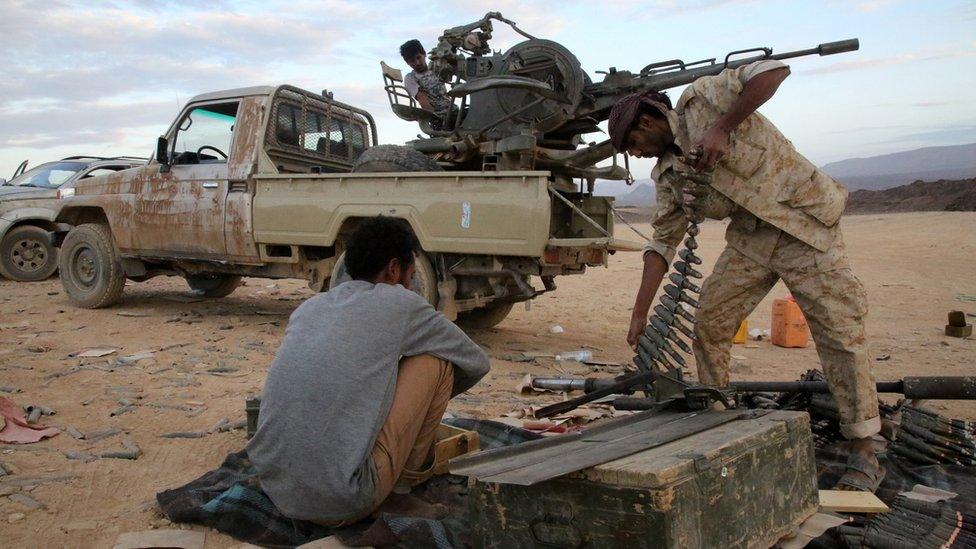
Saudi-led coalition and government forces have struggled to drive back the rebels
Yemen's warring parties have begun UN-backed peace talks in Switzerland, as a seven-day ceasefire came into effect.
The UN says the talks between the government, the Houthi rebel movement and its allies aimed to find a "durable settlement" to the months-long crisis.
About 6,000 people, almost half of them civilians, have been killed since a Saudi-led coalition launched a military campaign against the rebels in March.
The coalition is seeking to drive back the Houthis and restore the government.
Representatives of President Abdrabbuh Mansour Hadi, the Houthis and the General People's Congress party of former President Ali Abdullah Saleh - whose loyalists in the security forces have backed the rebels - are meeting near the town of Biel.
The Saudi-led coalition is not involved in the talks, which are expected to last all week.
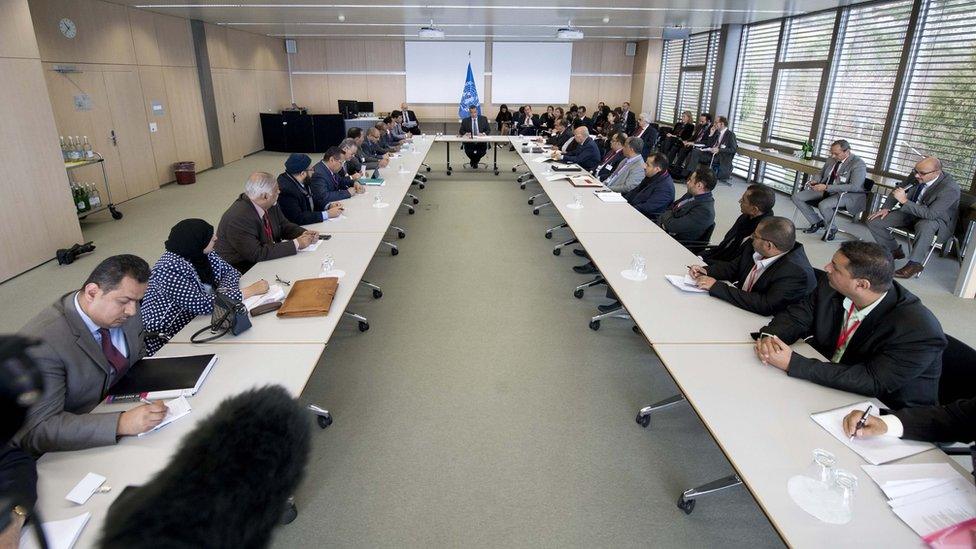
The UN hopes for a permanent ceasefire, prisoner exchanges and better access for aid agencies
The UN's special envoy to Yemen, Ismail Ould Cheikh Ahmed, said, external the truce "should mark the end of military violence in Yemen and the transition to progress based on negotiations, dialogue and consensus".
"Making peace is a fundamental requirement to rebuild Yemen, rehabilitate the basic infrastructure, address the consequences of the war, provide the necessary environment to normalize life in all governorates, and resume economic activity," he added.
The Mauritanian diplomat has said the warring parties are committed to implementing UN Security Council resolution 2216,, external which calls on them to end the violence and avoid unilateral actions that might jeopardise a political transition.

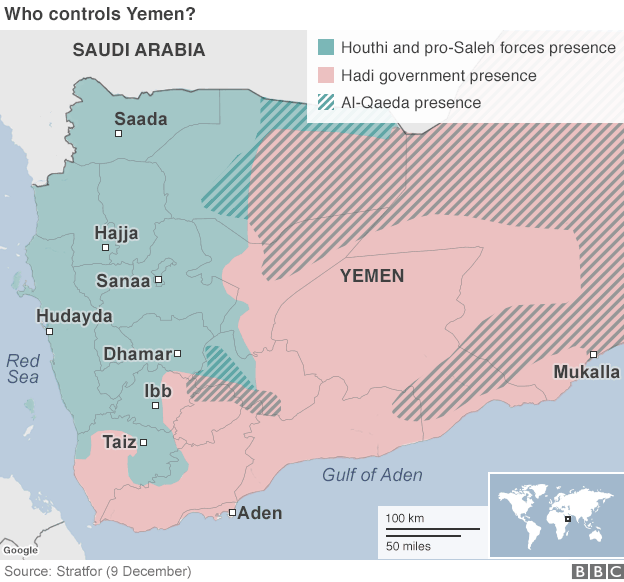

It also demands the Houthis and allied army units loyal to Mr Saleh withdraw from areas they have seized since September 2014, when the capital Sanaa was overrun, and hand over captured weapons.
An earlier round of indirect talks in Geneva in June ended without an agreement.
Hours after it began, the ceasefire appeared to be largely holding, although there were reports of violations by both sides.
On Monday morning, a Saudi military commander and an Emirati officer were reported to have been killed along with dozens of Gulf, Yemeni and Sudanese soldiers by a missile fired by rebels in Taiz province.
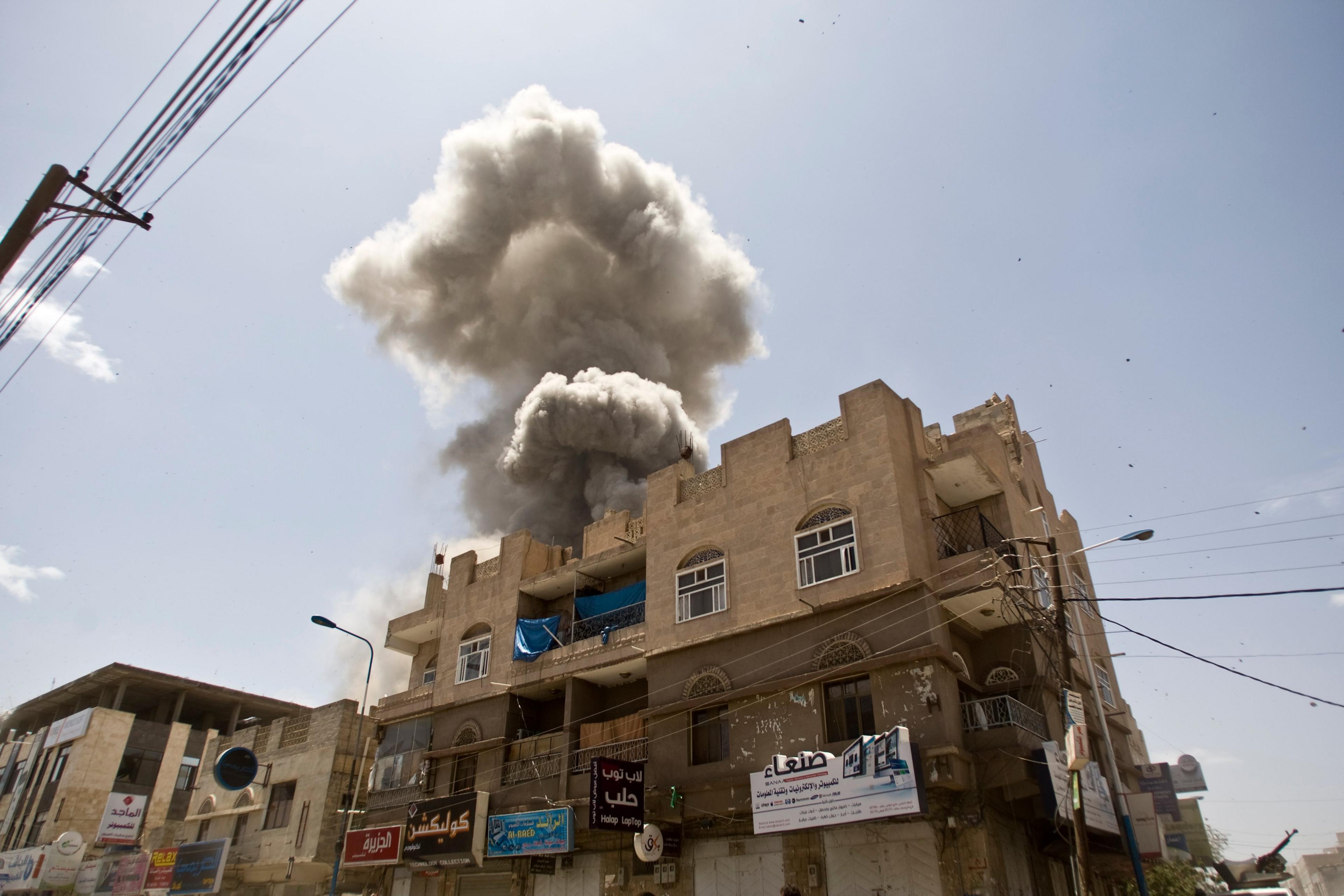
Almost 6,000 people have been killed since the conflict in Yemen escalated in March
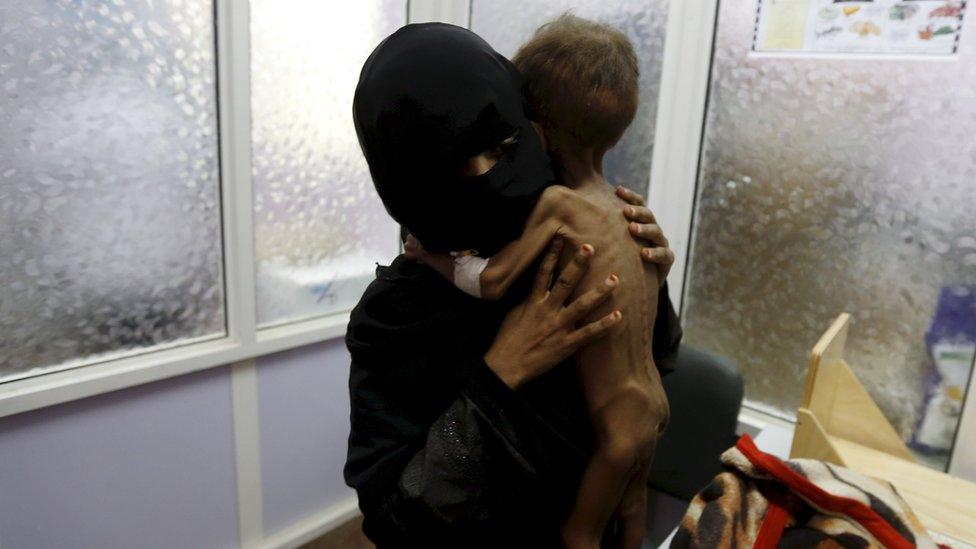
The already dire humanitarian situation in Yemen has also deteriorated severely
The coalition launched a military campaign in March after the Houthis advanced on the second city, Aden, forcing President Hadi and his ministers to flee the country.
Since then, coalition and pro-government forces have retaken Aden and the city of Marib, but have failed to drive the rebels out of the third city of Taiz.
The already dire humanitarian situation in Yemen has also deteriorated severely, with more than 21 million people - four-fifths of the population - now requiring aid.
The World Health Organisation (WHO) said it had been promised "unconditional movement" of supplies and medical teams as part of the ceasefire.
A spokesman said 19 aid lorries were due to leave Aden and Sanaa later on Tuesday, and that 150 tonnes of supplies were expected to be shipped to Yemen from Djibouti on Sunday or Monday.

Why is there fighting in Yemen?
Northern Shia Muslim rebels known as Houthis, backed by forces loyal to Yemen's ex-president, took over parts of Yemen, including the capital, Sanaa, and forced the government into exile in March
The rebels accused the government of corruption and of planning to marginalise their heartland within a proposed federal system
Forces loyal to the government and Southern militias, aided by Saudi-led coalition air strikes and troops, have since regained control of five southern provinces
